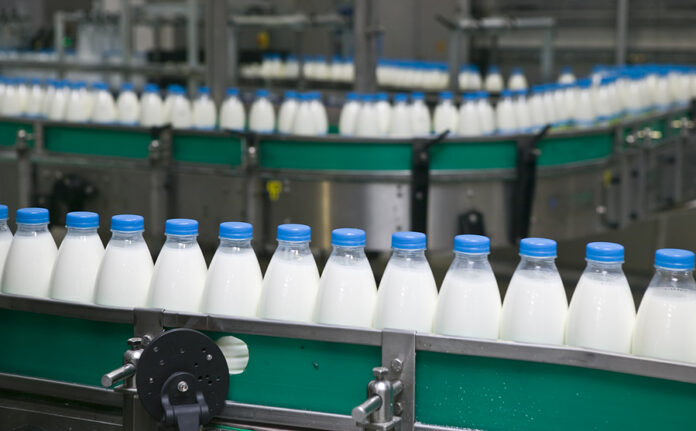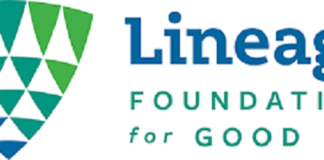
By Drew Schwoyer, Customer Success Manager at ECI Software Solutions
The stability of the food supply chain remains uncertain and tenuous, with a return to pre-pandemic norms yet to be achieved. Companies continue to face ongoing challenges in fully recovering from the COVID era upheaval, with material and resourcing issues remaining significant pain points. As the turbulence continues, elevated costs as a result of inflation further complicate and magnify the consequences. Nowhere is this truer than the dairy industry. According to the Federal Reserve of Economic Data, the consumer price index (CPI) for dairy and related products in cities across the United States has remained at an all-time high this year, with the last 14 months averaging a higher CPI than any other single point in history.
The dairy sector has consistently played a pivotal role in the worldwide food market. As consumers increasingly look for nutritious and sustainable dairy options, the challenge for companies to efficiently meet these demands while upholding high levels of quality has reached unprecedented levels. As we approach 2024, it becomes imperative for dairy manufacturers to tackle existing business challenges while positioning themselves to proactively navigate future trends.
Dairy’s challenging landscape
This sector is no stranger to complex challenges, but issues have failed to improve in recent years. The overarching challenge remains a precarious supply chain, which includes common concerns such as material availability, a lack of skilled workers, and reduced warehouse space. Especially within dairy, supply chain hindrances also raise concerns of quality control. Transportation inefficiencies and temperature control issues are just two of the areas that pose significant risks, with improper management potentially leading to spoilage. Issues in ingredient sourcing, regulatory compliance, and communication breakdowns further contribute to the vulnerability of the supply chain.
Amid these other factors, consumer expectations for high-quality and safe products only continue to rise, mounting added pressure. Consumers, however, aren’t the only ones with high expectations when it comes to what goes into the products; regulations continue to evolve, requiring compliance with stricter standards. Non-compliance in food and beverage poses severe risks, including regulatory penalties, product recalls, and legal consequences. Beyond the immediate effects, issues also jeopardize consumer trust, reinforce supply chain disruptions, and can ultimately mean loss of market share. To mitigate these risks, dairy manufacturers must prioritize robust quality control, stay compliant with industry regulations, and implement proactive measures to ensure product safety and adherence to standards.
Innovative solutions required
As challenges in the dairy industry evolve, the key solutions must be centered around efficiency, quality, and innovation. Approaching 2024, dairy manufacturers should be looking to employ agile technology that affords visibility and flexibility. An enterprise resource planning (ERP) tool is one of the options that leaders have at their disposal. Leveraging ERP systems can help tackle business challenges, adopt emerging trends, and navigate the fickle landscape that has proved a challenge of late.
ERP key in unlocking potential of dairy
When it comes to approaching systemic supply chain issues, ERP systems can be a lifeline for dairy manufacturers. On a broad scale, ERP streamlines the supply chain by providing visibility and control over every aspect, from raw material sourcing to distribution. This means manufacturers can meet quality standards and ensure product traceability efficiently. ERP systems also quell quality assurance concerns in their ability to enable strong quality control processes, guaranteeing compliance with dynamic industry standards and regulatory mandates for dairy products. The incorporation of real-time monitoring and reporting further elevates the overall quality of the products.
As a result, compliance is made simple. By furnishing real-time data and automated reporting, ERP systems empower organizations to effortlessly fulfill regulatory requirements and successfully undergo audits. No more pen and paper, no more convoluted spreadsheets. With enhanced visibility comes the freedom and confidence of ensured quality.
Implementing ERP in dairy manufacturing enhances operational efficiency, optimizing processes and resource allocation while reducing downtime. This efficiency extends to improved inventory management, enabling producers to maintain optimal stock levels and meet market demands seamlessly. With the visibility to project resource allocation and the flexibility to coordinate manufacturing activity, enhanced production planning and access to informed decision making become possible at each stage. By empowering leaders with analytic insights, it is easier to decipher market trends and ensure that dairy products remain competitive and aligned with consumer expectations.
Building towards a stronger future
Utilizing ERP to streamline business processes empowers dairy manufacturers to boost efficiency, lower operational costs and uphold product quality. In such a turbulent external environment, pen and paper solutions no longer cut it. Innovation is required. Rather than convoluting an already complex problem with disparate and siloed insights, simplicity is the answer. A single source of truth can offer dairy manufacturing the tools they require and provide the information that allows them to navigate a turbulent environment. The key to success in the dairy industry involves embracing technology and harnessing the transformative capabilities offered by ERP systems.
 Drew Schwoyer serves as a Customer Success Manager at ECI Software Solutions, a global provider of cloud-based business management software and services.
Drew Schwoyer serves as a Customer Success Manager at ECI Software Solutions, a global provider of cloud-based business management software and services.








